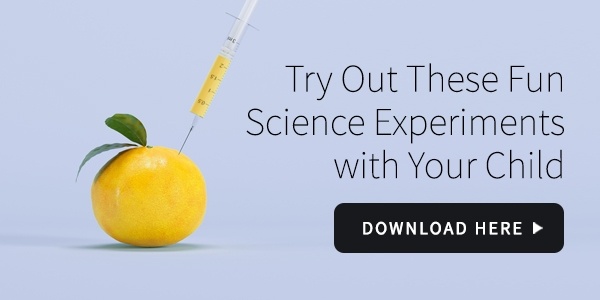
Acquiring an entire new range of skills can be a tall order for your Primary 3 child. For young ones with an insatiable curiosity for the world around them, the world of science can be an unending dimension of fun and exciting knowledge.
At The Learning Lab, our dedicated curriculum team and passionate teachers bring the world of science to the classroom to inspire young minds.
What “Type” of Science Will Your Child Learn?
For young learners, science can be a pretty intimidating subject. At the primary three level, your child will learn the basics of an education in science. His or her school syllabus aims to show your child how science is real and evident in the world around him or her.
From learning about major phenomena like the life cycles of living things to concepts such as energy and the water cycle, your child will gain a keener understanding of what makes a flower grow or how water can change from a liquid state to a solid state as ice. These little nuggets of information help him or her think more deeply about the day-to-day occurrences he or she encounters.
What Are the Major Pitfalls Primary 3 Science Students Face?
Besides having to master new concepts that go beyond language and mathematics, the study of science also requires young students to take on certain learning attitudes that cultivate a scientific mind — one that is methodical, inquisitive and analytical.
This may prove to be difficult for Primayr 3 students. It is hard to observe and rationalise at this young age. This problem may be overcome by encouraging your child to ask clarifying questions such as: “Why does X lead to Y?” or “How do we find proof that X will happen?”
Understanding the reasons why and how scientific phenomena occur will help your child to internalise these new science concepts.
Some Primary 3 students also find it challenging to understand the requirements of science questions. This can lead to your child having a lack of confidence in applying the knowledge he or she has learnt. He or she may also end up giving imprecise answers or incomplete answers.
Brushing up on question analysis skills can greatly help your child to understand what the question is asking for. Knowing the different type of directive words in a question (i.e. the difference between a “how” question and a “why” question) or the different question types (i.e. a flow chart question, a diagram-based question, an MCQ question) can aid your child in learning to answer with accuracy and precision.
Sometimes, students who do not have a natural inclination for science may find the subject dull and tedious. If your child is disinterested in science in school, speak to him or her and find out the root of the problem.
Often, children lose interest in things they do not understand. By showing your child that what he or she learns in class can be seen and heard in the world around him or her, you may just find a positive change in his or her attitude towards science.

Give Your Child the Best Start to Primary 3 Science
At The Learning Lab, science isn’t a subject packed with dry facts — it is an expansive academic field that is meant to be observed, explored, questioned and challenged!
Let your child have the opportunity to fall in love with science and to acquire all the right academic tools to understand, appreciate and adopt the attitudes of scientific inquiry.
Curriculum specialists design lesson materials to give your child a solid foundation in scientific skills like identification, reasoning, inference and analysis. Our teachers harness interest elements from the syllabus and bring them to life in the classroom.
Let's work together to give your child the best start to the science learning journey.
Get Ahead, Stay Ahead
The new year will bring new challenges - but things do not have to get challenging.
At The Learning Lab, our Science programmes aim to help your child answer questions independently by guiding him or her progressively in learning the right skills and answering techniques.
Your child will also be given opportunities to participate in Science projects, experiments and games that bring concepts to life and encourage a hands-on approach to learning Science.
Find out more our Science programmes here.
The Learning Lab is now at locations. Find a location that suits your needs.
If you have any questions about our range of programmes or class schedules, you may contact us at 6733 8711 or drop us an email at enquiry@thelearninglab.com.sg.

